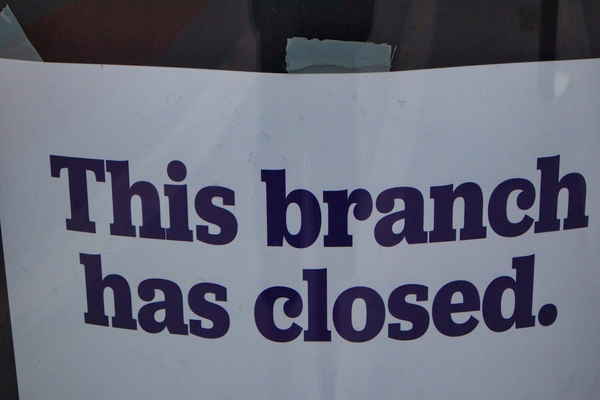HR, marketing and solving the skills shortage

Sarah Woodhouse at AMBITIOUS explains how HR and marketing can collaborate to elevate employer branding
A strong employer brand is a crucial factor not only for attracting top talent but also for retaining valuable employees in a market where a war for talent rages. Crafting a compelling employer brand is a strategic initiative that relies on collaboration between Human Resources (HR) and marketing departments.
By working together, these teams can create a cohesive narrative that resonates with prospective candidates while simultaneously enhancing the experience of current employees. However, it’s important to recognise that building and enhancing an employer brand is not a strategy to be activated only during recruitment campaigns. Rather, it is an ongoing process that should be ingrained in the organisation’s culture and operations at all times.
This article looks at the necessity of keeping employer branding on the board agenda and explores how organisations can leverage various platforms to effectively communicate their brand to candidates to create a lasting impact.
The employer brand journey
The journey of an employer brand begins well before a candidate even sees a job description. It starts with the initial interactions individuals have with a company, whether through social media, employee testimonials, or industry reputation. Each touchpoint contributes to a candidate’s perception of the organisation. The narrative that unfolds as a candidate moves through the hiring process is vital and should reflect the organisation’s culture, values, and mission.
However, this branding does not end once a candidate is hired; instead, it should continue throughout the entire employee lifecycle—from onboarding and performance reviews and beyond.
A truly effective employer brand embodies the ethos of the organisation and should be consistent across all stages. HR and marketing must align their strategies, ensuring that the values communicated during the recruitment process are mirrored in the day-to-day experiences of employees. When the messaging is cohesive, it helps build trust and fosters a sense of belonging among employees, thereby improving retention and overall satisfaction.
Engaging candidates on multiple platforms
Traditionally, LinkedIn has been the go-to platform for recruitment, providing a space for professional networking and job listings. However, as communication channels have broadened, employers now need to consider multiple external platforms.
To truly attract a diverse pool of candidates, organisations must look across multiple social media sites such as TikTok, Instagram, and Facebook, alongside traditional channels like LinkedIn, to effectively showcase their employer brand.
TikTok, in particular, has emerged as a powerful tool for employer branding, especially among younger demographics. The platform’s engaging and informal nature allows companies to showcase their workplace culture in innovative ways.
By creating content that highlights day-to-day operations, employee experiences, and even light-hearted glimpses into the company culture, organisations can humanise their brand. TikTok allows for creative storytelling that resonates with potential candidates on a personal level. For instance, behind-the-scenes videos featuring team activities, employee takeovers, or fun challenges can create a relatable and authentic image of the workplace, making candidates feel more connected before they even step foot in the door.
Moreover, employers should recognise that candidates often research organisations across multiple platforms before applying. Therefore, consistency across these channels is critical. For instance, if an organisation presents a vibrant and dynamic culture on TikTok, this image should be reflected on LinkedIn, the corporate website, and even during the interview process.
When candidates see a consistent message and experience, they are more likely to perceive the organisation as trustworthy and desirable.
Keeping employer branding on the board agenda
To ensure that employer branding remains a priority, it must be consistently highlighted at the board level. Highlighting the correlation between a strong employer brand and the bottom line is essential in garnering support for ongoing employer brand efforts.
For instance, a study conducted by LinkedIn found that organisations with a strong employer brand can reduce turnover rates by up to 28% and decrease costs associated with hiring by 50%. This highlights the importance of investing in employer branding beyond just recruitment campaigns. The objective is to create a culture where employer branding is seen as an integral component of the organisational strategy rather than simply a checkbox during hiring periods.
Embedding employer branding into the company’s overall strategic objectives can facilitate alignment between HR and marketing. By collaborating to develop key performance indicators (KPIs) related to employer branding, these departments can work towards common goals that reflect the organisation’s vision.
This integrated approach can significantly enhance the organisation’s reputation as an employer of choice whilst also improving engagement and retention rates among existing employees.
Measuring employer brand effectiveness
To assess the effectiveness of employer branding efforts, organisations should employ various metrics that provide insights into both candidate perceptions and employee experiences. One essential metric is the volume and quality of applicants. By tracking the number of applications received for open roles, HR can evaluate whether a strong employer brand is attracting top talent.
Additionally, assessing the qualifications and cultural fit of candidates can help determine if the messaging resonates with the right audience.
Another crucial metric is employee turnover rates. High turnover can be indicative of a disconnect between the employer brand and the employee experience. Understanding why employees leave through exit interviews or surveys can provide valuable insights into potential areas for improvement.
Furthermore, monitoring employee engagement scores can highlight how well employees align with the employer brand and its values. Regular pulse surveys can serve as a barometer for employee satisfaction and help HR and marketing teams identify trends and address concerns proactively.
Social media engagement is also a vital metric for measuring the effectiveness of employer branding initiatives. Organisations should analyse engagement levels across platforms to determine which messages resonate most with their audience. By assessing likes, shares, comments, and follower growth, HR and marketing can refine their strategies to enhance brand visibility and engagement.
The bottom line
In an era where candidates have numerous options, the collaboration between HR and marketing is essential for crafting a compelling employer brand that engages both current and prospective employees. By leveraging various channels such as TikTok, candidates can get a feel for the organisation and the team culture long before they apply.
Ensuring that employer branding remains a consistent agenda item allows an organisation to monitor its performance in driving business success. Ultimately, maintaining a strong employer brand requires continuous effort and strategic alignment between HR and marketing.
In a market where attracting and retaining top talent becomes a differentiator, a strong employer brand can quickly position an organisation as an industry leader.
Sarah Woodhouse is a director of AMBITIOUS
Main image courtesy of iStockPhoto.com and Sorapop

Business Reporter Team
Most Viewed
Winston House, 3rd Floor, Units 306-309, 2-4 Dollis Park, London, N3 1HF
23-29 Hendon Lane, London, N3 1RT
020 8349 4363
© 2024, Lyonsdown Limited. Business Reporter® is a registered trademark of Lyonsdown Ltd. VAT registration number: 830519543





